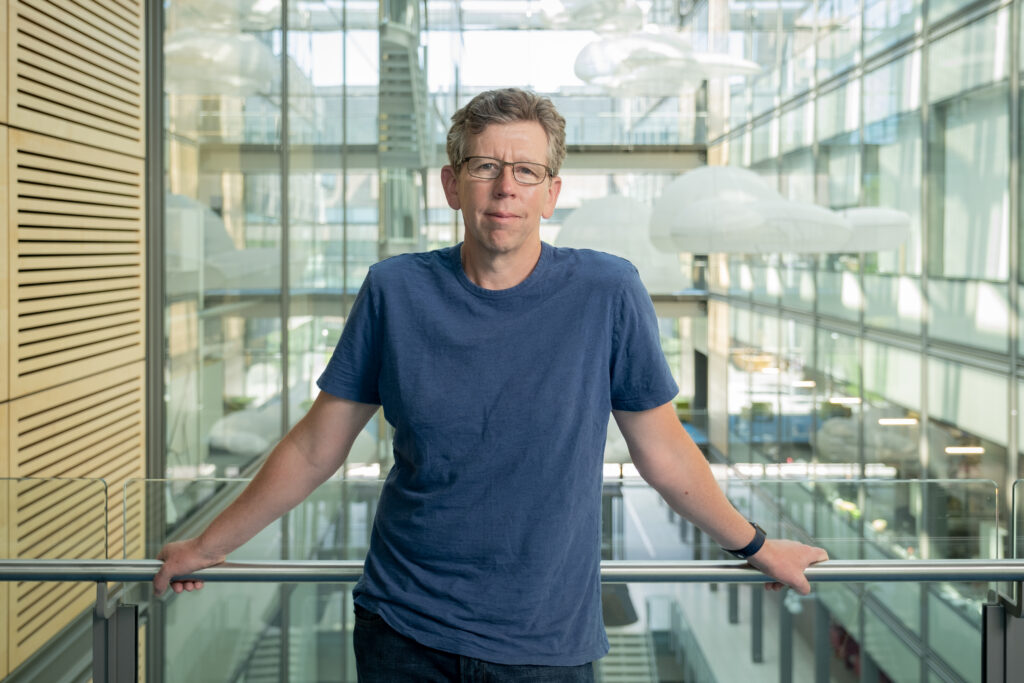Tom Muir is Named Member of the National Academy of Sciences

Tom W. Muir, the Van Zandt Williams Jr. Class of 1965 Professor of Chemistry, has been elected to the U.S. National Academy of Sciences, one of 120 national scientists and 24 international scientists selected for recognition of their distinguished and continuing achievements in original research.
Membership in the private, non-profit organization is widely considered one of the highest accolades a scientist can receive. Members are selected based on their body of work spanning a career. In Muir’s case, methods developed in his lab are used worldwide to address fundamental problems in protein biochemistry.
This year’s inductees were named at the conclusion of the Academy’s 161st Annual Meeting held last week in Washington, D.C.
“This was a total surprise, but obviously a very lovely one,” said Muir. “No one expects this kind of recognition. I still wouldn’t believe it but for the hundreds of congratulatory emails and text messages I have received.
“I view this as acknowledgement of the hard work and creativity of the many dozens of amazing students and postdocs who have been brave enough to work with me over the decades,” he added. “It is one of the great privileges of being lab head to get the chance to work with bright and ambitious young people from all over the world. I don’t think any other job has this. I tip my hat to all the current and former Muir Lab members.”
At a gathering in honor of Muir last week at Frick Lab, Department Chair Paul Chirik said: “The Academy knows your science. But here at Princeton, we know your energy and commitment as a colleague, as a leader in the department, as a mentor for graduate students and postdocs, and as a friend. Congratulations, Tom.”
The Department of Chemistry now has six Academy members among its 32 faculty.
Research in the Muir Lab focuses on the development and application of chemical biology approaches, especially those that allow the manipulation of protein structure with chemistry. The lab has used these approaches to study processes as varied as protein kinase signaling, ion channel function, epigenetics, and bacterial quorum sensing.
Muir was one of three Princeton University individuals selected for membership in the Academy this year including Noreen Goldman, the Hughes-Rogers Professor of Demography and Public Affairs, Office of Population Research; and Cecelia Rouse, the Lawrence and Shirley Katzman and Lewis and Anna Ernst Professor in the Economics of Education and professor of economics and public affairs, and president, The Brookings Institution, Washington, D.C.
Muir has also recently been elected to The Royal Society (2021), the oldest national scientific institution in the world; and the American Academy of Arts and Sciences (2020) in the area of biological sciences. He has been with the Department of Chemistry since 2010 and served as its Chair from 2014 to 2020.
Muir received his B.Sc. and his Ph.D. in chemistry from the University of Edinburgh. He did his postdoc at the Scripps Research Institute. He was on the faculty at the Rockefeller University from 1996 until he came to Princeton.
The National Academy of Sciences is a private, nonprofit institution that was established under a congressional charter signed by President Abraham Lincoln in 1863. It recognizes achievement in science by election to membership, and — with the National Academy of Engineering and the National Academy of Medicine — provides science, engineering and health policy advice to the federal government and other organizations.
